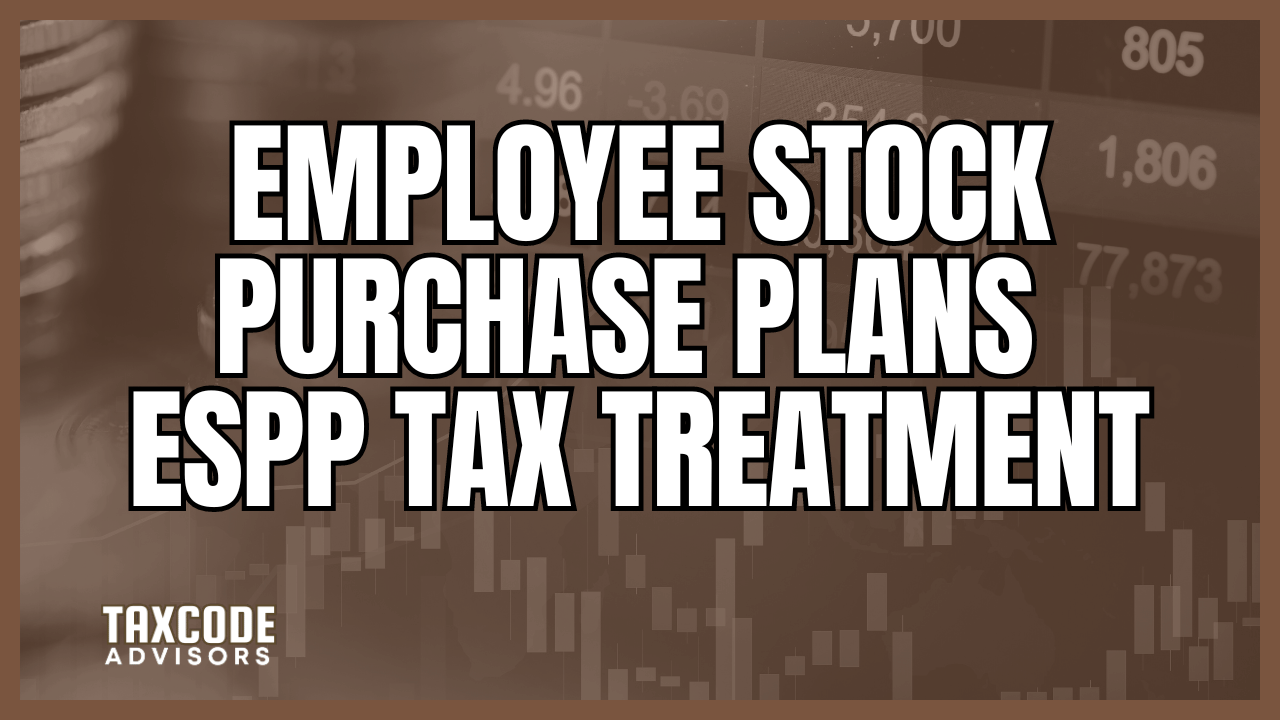Companies often provide opportunities for their employees to invest in the organization's future growth. One such popular method is through Employee Stock Purchase Plans (ESPP). This plan allows employees to buy their employer's stock, often at a discounted rate, and then benefit from the potential growth of that stock. But what does this mean in terms of taxes?
How Does ESPP Work?
Typically, employees can set aside a portion of their salary, which accumulates over a specified period. At set times during the year, the employer uses this accumulated money to purchase company stock on behalf of the employees.
The true magic of an ESPP is in the discount. Often, employees can buy the stock at the lower of two prices: the price when they first started setting money aside or the price when the actual purchase is made. This could be discounted by up to 15%, which means considerable savings and potentially significant profits.
Tax Implications of ESPP
The initial purchase of stock through ESPP doesn't trigger any taxes. The tax implications come into play when you sell the stock.
- Discount: The discount you get when buying the stock is considered additional income, and you'll have to pay regular income tax on it when you sell.
- Short-term vs. Long-term: If you sell your ESPP stock within a year, any profit you make is taxed as regular income. However, if you hold onto the stock for more than a year, any profit you make will be taxed at the generally lower capital gains rate.
What's a Qualifying vs. Disqualifying Disposition?
This refers to specific rules about when you sell your stock:
Disqualifying Disposition: If you sell the stock within two years of the offer date or within one year of the purchase date. Here, the discount (or the difference between the discounted price and the market price) is reported as regular income.
Qualifying Disposition: This is when you sell the stock after holding it for at least two years from the offer date and at least one year from the purchase date. In such cases, part of the profit is considered regular income, while any additional profit is considered a long-term capital gain, taxed at a lower rate.
Real-world Scenarios
Let's walk through some examples:
- Situation 1: Let's say you buy the stock at a 15% discount and sell it within a year. This is a disqualifying disposition, meaning the discount you received is taxed as regular income. Any additional profit from the sale is considered a short-term capital gain.
- Situation 2: If you sell your ESPP shares more than a year after buying but less than two years from the offer date, you're still in the realm of a disqualifying disposition. However, any profit from the sale is now considered a long-term capital gain, enjoying a lower tax rate.
- Situation 3: If you hold the stock for more than two years from the offer date and more than one year from the purchase date, you've achieved a qualifying disposition. Here, only a portion of your profit is taxed as regular income, while the rest benefits from the lower capital gains tax rate. This scenario gets slightly more intricate if the market price increased between the offering date and the exercise date. When it comes to tax reporting, it's worth noting that even if your employer doesn’t list any amounts on your 2023 Form W-2 related to this transaction, there's still a requirement for you. You need to report a certain amount as ordinary income on your 2023 Form 1040, labeled "compensation".
Here's a clearer breakdown:
Calculate Your Ordinary Income: You'll need to determine the lesser of two figures:
- The total gross sales price (minus the actual discounted price you paid for the shares and any sales commission).
- OR the company's per-share discount multiplied by the number of shares you sold.
Reporting on Form 1040: Once you determine the appropriate amount, you'll report this on your Form 1040 as "ESPP Ordinary Income."
Capital Gains on Schedule D: Apart from the ordinary income, you also need to account for the profit you made from the sale. This will be reflected on Schedule D as a long-term capital gain. Given that you held the stock for more than one year, you'll benefit from the typically lower long-term capital gain tax rates.
Employee Stock Purchase Plans can be a fantastic way for employees to benefit from the growth of their company. However, it's essential to understand the tax implications when participating in an ESPP. By planning your stock sales strategically, you can maximize your benefits and minimize your tax liability. If you're ever in doubt, it's always a good idea to consult with a tax professional to guide you through the complexities of ESPP-related taxes.
